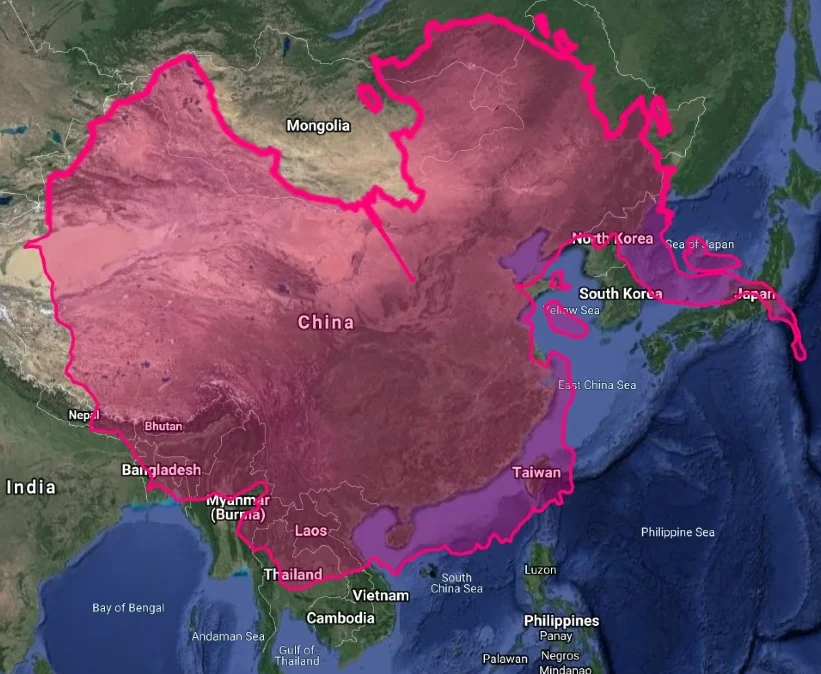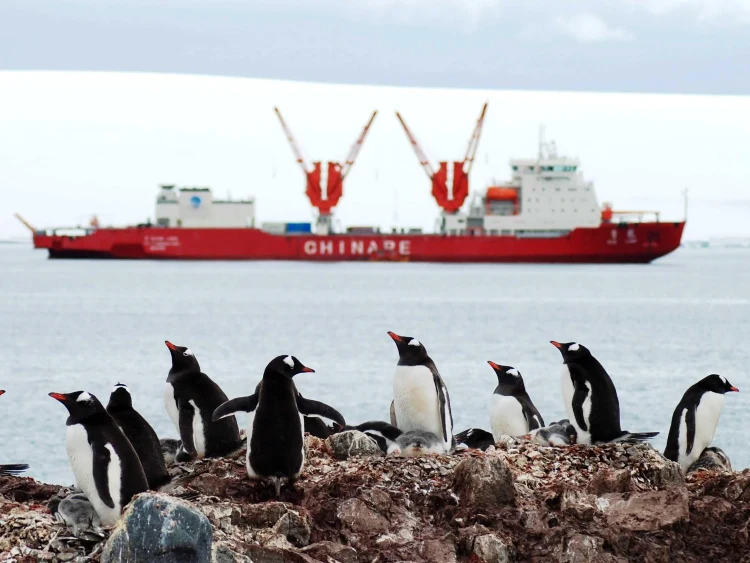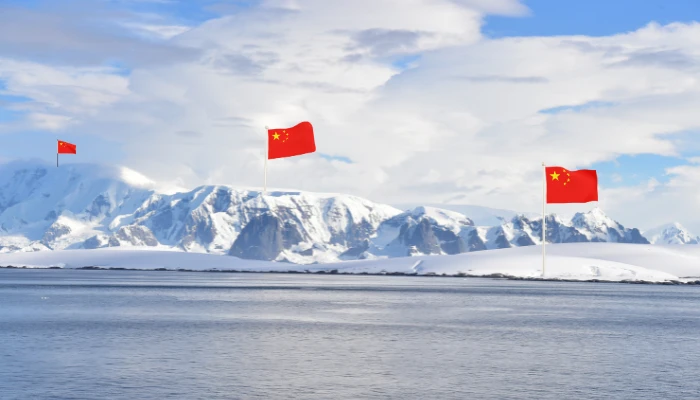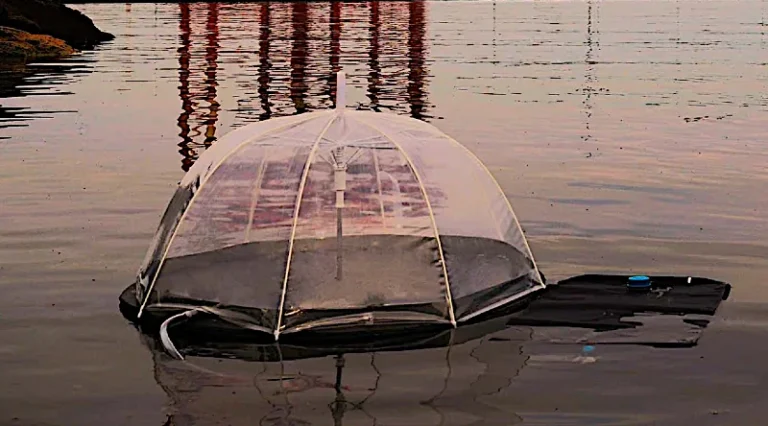We’ve reported on the fact that China, and Russia, refuse to agree on environmental protection for Antarctica, in fact, many outlets have reported on it. But few are discussing the reasons why… Why is China being so sneaky when it comes to the giant ice continent, and what are they up to?
China wants us to believe that Antarctica has been their territory since ancient times.
China’s claims and activities in Antarctica, which they assert, have historical roots dating back to a supposed Qing dynasty manuscript granting them herding rights on the frozen continent. No one has seen this, not that it matters.
While some may dismiss Antarctica as nothing more than a colossal ice cube, its global significance can’t be overstated. It’s a treasure trove of potential resources – from energy reserves to rare earth elements – and boasts abundant fishing stocks in the Southern Ocean. Beyond that, its strategic position at the South Pole holds vast military potential, especially for satellite communication and telescopic arrays.
In short, Antarctica is far more than just a barren icy expanse. Gaining control or dominance there can bolster a superpower’s standing significantly.
However, the Antarctica Treaty, established to regulate international relations with respect to Antarctica, explicitly prohibits military activity on the continent. While most countries adhere to this, some are bending the rules.
Countries like the U.S. use military personnel for logistical support in scientific missions, but everything is transparent and reported to the Antarctic Treaty System. China, however, has been less forthcoming. They’ve brought PLA officers, the military force of the People’s Republic of China, to their research stations without notification, violating the treaty’s demilitarization clauses. There are layers of unknowns here, and that’s unsettling.

When it comes to inspections – the primary mechanism to ensure treaty compliance – the last U.S. inspection was back in 2011. Since then, China’s presence and infrastructure in Antarctica have grown significantly, paralleling their rapid militarization in the South China Sea. China has yet to invite inspectors to their stations.
Logistics and political will are the main barriers to more frequent inspections. Antarctica’s harsh conditions make any operation there extremely challenging and expensive.
A former US official strongly believes that, “We need to re-establish ourselves as an Antarctic power, with investments in necessary equipment like icebreakers and specially fitted aircraft. But first, the issue needs to be prioritized at the highest levels of government.”
In terms of physical size, Antarctica is immense, creating additional logistical challenges.
Even short flights from New Zealand to Antarctica are multi-million dollar operations requiring extensive preparation. Inspecting bases across the continent would be an even more Herculean task.
The most effective strategy would involve international collaboration, with inspections conducted by teams from multiple countries. After all, this isn’t about singling out China; it’s about upholding the treaty and ensuring its viability for the future.
While China has not yet started inspecting U.S. bases, it’s a possibility soon, and something the U.S. should be prepared for.
As the world’s leading democratic power, the US must lead by example, opening bases to inspection and encouraging others to do the same. This is about maintaining the integrity of the Antarctic Treaty and ensuring it continues to serve its purpose for years to come.
All The Reasons China Wants Antarctica For Themselves
China’s interest in Antarctica, like that of other nations, is multifaceted, encompassing scientific research, resource exploitation, geopolitical influence, and more. But unlike most other nations, China has proven that the communist government is committed to keep Antarctica away from stricter environmental protections, in an ongoing effort to establish a stronger foothold on the continent for themselves.
Resource Exploitation
Mineral Resources: Antarctica is believed to have vast mineral resources, including coal, iron ore, copper, gold, and oil. Loosening environmental protections could facilitate access to these resources, which is particularly appealing to a nation that has a near monopoly on rare earth minerals that are used in high-functioning technologies including smartphones.
Fishing Rights: The Southern Ocean is rich in marine life, including commercially valuable species such as krill and Patagonian toothfish. China has a large fishing industry and seeks to increase its fishing quotas and access in the region.
Freshwater Reserves: Antarctica holds a significant portion of the world’s freshwater encased in its, presently melting, ice. With water scarcity becoming a critical issue worldwide, access to these reserves will become very valuable, particularly to a nation like China that is one of the most populous countries on the planet.

Geopolitical Influence
Strategic Positioning: Establishing a stronger presence in Antarctica enhances China’s position in global geopolitics, potentially allowing them to exert more influence over international decisions and treaties. The country has long been using geopolitical and economic influence throughout Africa and South America and has lately moved to Europe to gain a tighter foothold on the international stage.
Military Advantages: While the Antarctic Treaty prohibits military activity, having a presence near the South Pole can offer strategic advantages, such as improved satellite communications and surveillance capabilities. And while every other nation has lived up to the treaty, China is well known to have extended their reach in the arctic with members of their People’s Liberation Army (PLA).
Scientific Dominance: By leading in Antarctic research, China can assert itself as a scientific powerhouse, gaining prestige and influence on the global stage. The nation has invested many billions and is well known as a longtime supporter, and frequent user, of economic espionage to gain a research advantage. This has only increased considerably with the race for quantum computing superiority.
Economic Opportunities Via Bioprospecting
Antarctica’s unique ecosystem likely harbors organisms with potential applications in medicine, agriculture, and other fields. Access to these biological resources could be economically lucrative to the tune of many billions of dollars.
Establishing Territorial Claims
Long-Term Investment: Although the Antarctic Treaty currently prohibits new claims or the expansion of existing claims, establishing a strong presence could position China favorably if the treaty were ever renegotiated or dissolved.
National Prestige: Demonstrating the ability to operate in and contribute to the understanding of Antarctica enhances national prestige and showcases China’s capabilities, and thereby the perceived superiority of communism, on a global scale.
Military Advantages & Outright Publicity
Incremental Expansion: Gradually increasing the number of bases and the scope of activities, while maintaining a guise of scientific research, could help China strengthen its presence without attracting undue attention. This exact strategy has been played by out by China in multiple countries already.
More To Discover
- States Consider Restrictions on Foreign Farmland Purchases Amidst Rising US-China Tensions
- Global Shifts in Nuclear Power: China and Russia Are Outpacing Everyone Else
- U.S. Coast Guard Helps Vanuatu Expose Illegal Fishing by Chinese Vessels
- Bottom Trawling Unleashes 370 Million Tons of Hidden Carbon Emissions, Study Reveals
Public Relations Campaigns: Promoting a narrative that highlights China’s contributions to Antarctic science and global understanding of the continent, potentially deflecting attention from other motives such as human rights issues, environmental concerns, widespread theft of valuable intellectual property from companies and governments.
Given everything you now know about the value of Antarctica to the globe itself, it’s easy to understand why the world’s second economic superpower is actively pursuing these strategies and positioning itself to gain a wide range of benefits from Antarctica, while working to minimize the environmental protections that could get in the way of their larger ambitions.















